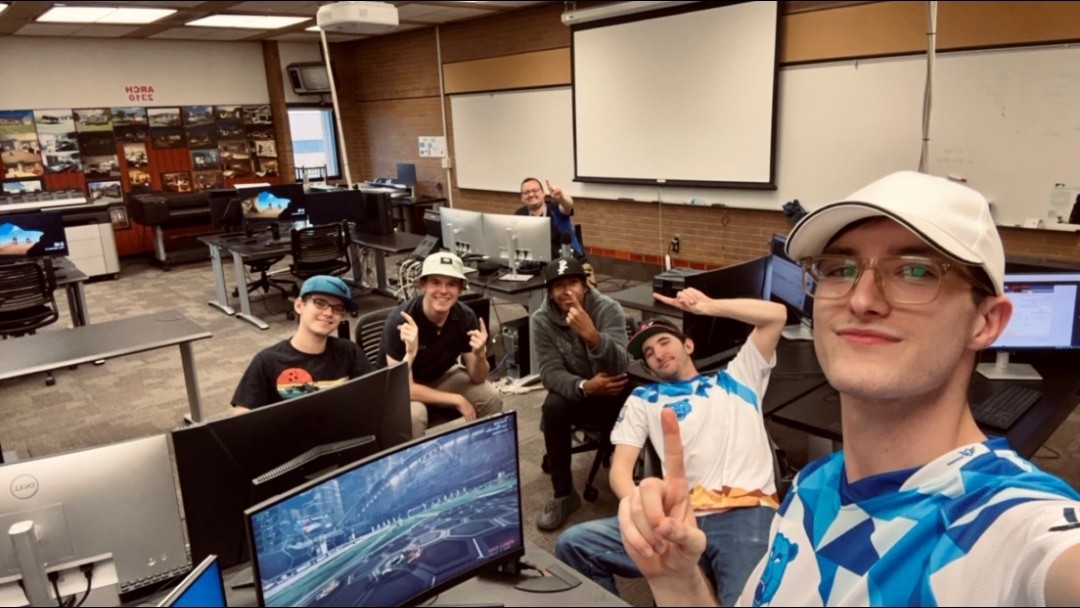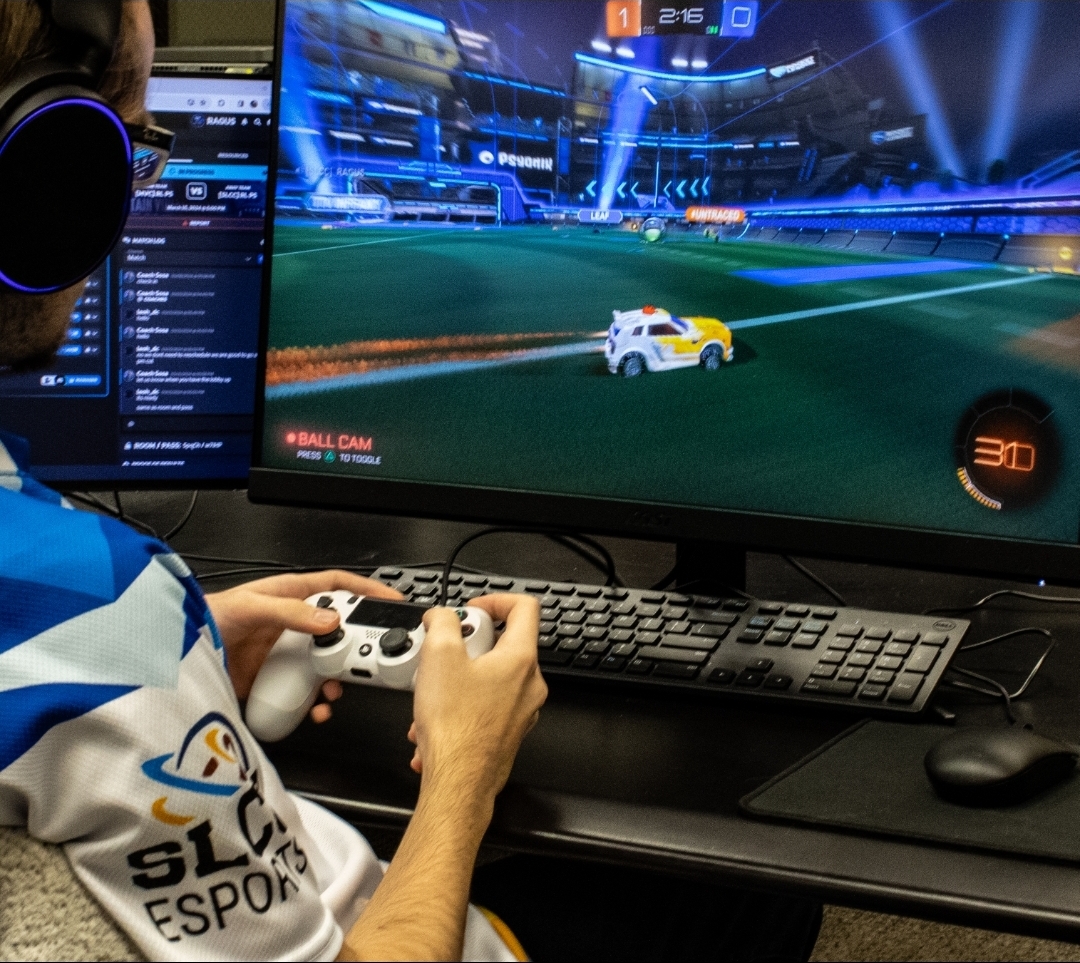
Following the athletic department’s recent decision to remove esports, all scholarships for the Salt Lake Community College esports team have been discontinued for the 2025-2026 academic school year.
The team currently sits in limbo as they await relocation to a new department, a decision set to arrive at the end of the spring 2026 semester.
“The school as a whole is seeing budget cuts,” said Jeff Sosa, esports coach. “To try to get esports more resources, more staff, more budget to buy computers and have our own lab, they are wanting to shift us from athletics into a different department, and those scholarships are tied to the departments.”
While this decision may be necessary to eventually receive better funding, many current esports players feel it was an abrupt one. Some students have opted to transfer early or take a leave of absence until the esports team officially moves departments, according to Sosa.
“A couple of the ‘Overwatch’ players had to drop esports,” said Abel Remy, the “Rocket League” varsity captain. “They are very good and very skilled [players]. Now that they don’t have a scholarship, they have to … go find a job while doing full-time school.”
Evan Larkin, a varsity player on the “Rocket League” team, said he may eventually have to take a break from school because of the decision.
“I have the means to be able to pay for college right now, but it will impact my future educational expenses because having to pay for the current $2,500 tuition at SLCC can impact how much money I can spend on a university-level tuition down the line,” said Larkin.
According to Larkin, only three people showed up at “Rocket League” tryouts earlier this semester. Last semester, there were enough players to fill five-player junior varsity and varsity teams, and then some. One possibility for this semester’s lack of turnout could be the halt of scholarships.
“I know one kid … was going to come this year, but I had to tell him there were no more scholarships,” said Remy. “He actually can’t go to college because he was hoping to get a scholarship here to pay for it but instead, he has to go work.”
The SLCC esports team has been performing at a high level in competitions, which takes time and dedication that may be difficult to sustain without financial support.

The SLCC Athletics website lists several esports team accolades in recent NJCAA competitions, including:
- two-time regional and national champions in “Hearthstone,”
- first regionally and third place nationally in “Overwatch 2,”
- third place nationally in “Valorant,” and
- third place nationally in “League of Legends.”
There are more than 200 colleges in the league and SLCC is easily in the top ten, if not top five as a two-year college in esports, according to Sosa.
“We are probably the only team making it to nationals who don’t have a computer lab, which speaks to how good our students are, how dedicated and how much they want it,” Sosa said.
Remy added that rival programs such as Columbia Basin College and Iowa Western Community College take esports more seriously, as evidenced through their well-funded facilities.
“Our situation is that we were lucky last semester to have the lab on Friday, but the lab was the architecture room. It wasn’t for esports,” Remy said.
This semester, SLCC esports players are not only facing loss of scholarships but also loss of access to their shared space on campus.
Due to the construction of the new business building on the Taylorsville campus, the team is now competing remotely, Sosa said. This complicates matters for players without ideal home conditions.
“It will be very difficult to play if you are having internet issues,” Larkin said. “If your computer isn’t good enough to run ‘Rocket League’ at the expected level … that’s also going to impact your performance. Not having a room is a bigger disadvantage … even for people who have a really good [at home] setup.”
Last semester, the team dynamic for “Rocket League” was different, all because of partial access to a room.
“You could do scrimmages there, show up early and hang out. You could also use the whiteboard and go over plays,” Remy said. “My favorite part of the week was seeing [the team] on Friday … You get to laugh with them. You get to joke with them. They’re there through your losses and wins … Our bonding [now] is not as strong as it used to be.”
Sosa hopes that with the coming decision of where to place esports, SLCC will not only find the program a home, but a good home that will prioritize supporting nationally acclaimed players who have shown they take the sport seriously.
The esports team hopes the college will eventually restore funding for scholarships, equipment, staffing and a dedicated lab.
Editor’s note: This article has been updated to include new information regarding funding cuts to esports.







I hadn’t previously considered how impactful the facilities are, especially to the team aspect of the game. They’re doing an awesome job representing us at such a high level with such subprime school support. This was very eye opening.
Given the prominence of University of Utah’s game design program, I’m surprised there isn’t some kind of path/scholarship that involves Esports for those who want to pursue an education in Game Design at the U or even some related, allied subjects.
Comments are closed.